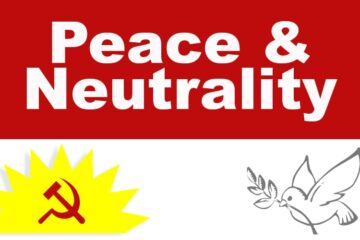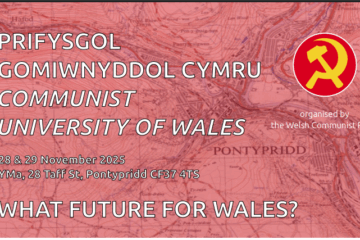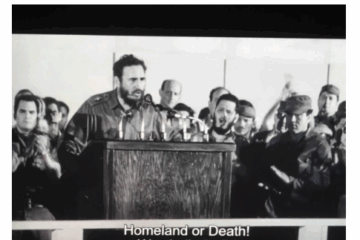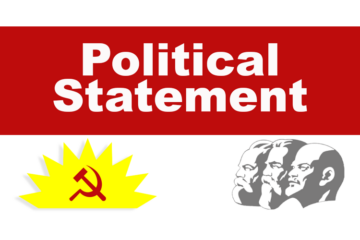Even before the defeat of the centuries-old Ottoman Empire, France, Britain, Italy, and Russia were already strategising how best to split it up. During World War I, to garner support for an Arab revolt against the Ottomans, the British promised Husayn Bin Ali Sharif, the Emir of Mecca, and his Arab nationalist supporters, independence and vast swathes of land that would have stretched from Aleppo to Yemen’s port of Aden. The British got their revolt on June 10th, 1916, and soon after sent in troops, an advisor in the form of T.E. Lawrence, and weapons to prop it up.
In the background the British and the French were making deals that would ensure not only that the promises of a united Arab kingdom would never materialise, but King Husayn would not even maintain all the land his troops had occupied during the course of the war. He ended up with a much smaller nation that stretched from Jordan to Mecca known as the Kingdom of the Hejaz. While King Husayn’s forces moved Northwards the British issued the Balfour Declaration in November 1917, announcing their support for setting up a Zionist state in Palestine. And secretly, only weeks after Husayn’s uprising, with the Sykes-Picot Agreement, the British were already dividing up the Middle East into French and British spheres of influence, including some of the same territories they had promised the to the Arabs.
When King Husayn heard the news of the Balfour Declaration he was disturbed. Commander Hogarth of the Arab Bureau was dispatched to Jeddah at the beginning of January to mollify the king. He gave the king “on behalf of the British Government… an explicit assurance that ‘Jewish settlement in Palestine would only be allowed in so far as would be consistent with the political and economic freedom of the Arab population’”. As noted by the Arab historian George Antonius, this phrase “represents a fundamental departure from the text of the Balfour Declaration which purports to guarantee only the civil and religious rights of the Arab population”[1]. Husayn had been tricked, and the settlement of European Jews in Palestine would have very little to do with respect for Arab rights and welfare.
After the war, it became clear that everything Husayn had been promised in correspondence with the British the Sykes-Picot Agreement and the Balfour Declaration took away. These problems led to Husayn refusing to ratify the Treaty of Versailles. The British viewed Husayn’s signature as important as they thought it would be viewed as an endorsement from Mecca. The British tried everything. They sent T.E. Laurence to negotiate with him, they bribed him and threatened him, all of which didn’t work. Husayn was clear, he simply wanted the promises the British made him to be fulfilled. Still by 1924 Husayn was asking for independence for Palestine; however, by September of that year, the British-backed Nejd, which was the precursor to Saudi Arabia, had invaded Hejaz and Husayn was forced to abdicate and live the rest of his life in exile.
The Balfour Declaration promised to create a Jewish homeland in Palestine to garner Jewish support. The Zionist movement had been looking for an imperialist sponsor for decades. Both David Ben Gurion and Moshe Sharett believed it would be the Ottomans who would grant them this homeland, but they were rejected. The reason for settling in Palestine was twofold, for Jews it was always seen as the “holy land” and for Britain, it would gain a staunch ally in the Middle East, an imperialist tool to control a strategic region in the Middle East, in particular because of the Suez Canal at that time. They would be a sort of Jewish Ulster as the people would be loyal to the British for giving them something a section of Jewish people had longed for since the destruction of the first temple in 586 BC and the exile from Babylon.[2]
Of course, the big problem with creating this new Jewish homeland was that of the overwhelming Arab population. In 1918 the Jewish population of Palestine was 60,000 which was only 8.1% of the whole population. Edward Said said it best when he said of the Balfour Declaration:
“The declaration was made (a) by a European power, (b) about a non-European territory, (c) in a flat disregard of both the presence and the wishes of the native majority resident in that territory, and (d) it took the form of a promise about this same territory to another foreign group, so that this foreign group might, quite literally, make this territory a national home for the Jewish people.”[3]
Or in the words of Arthur Koestler, here was one nation promising another nation the land of a third nation.
The Balfour Declaration was one of the main catalysts of the Nakba in 1948 when Zionist armed groups – whom the British trained – forcibly expelled more than 750,000 Palestinians from their homeland. Today it is still impossible to look at the internet or the television and not see harrowing news about the ongoing Israeli genocide in Gaza. This is all due to the imperialist powers making promises they could not keep for land they had no right to control.
– M. O’Brien, CPI International Newsletter, Vol. 2 2024
[1] Michael D. Berdine, Redrawing the Middle East: Sir Mark Sykes, Imperialism and the Sykes-Picot Agreement, I.B. Tauris: 2018. p.189
[2] Newsinger, J. (2013) in The blood never dried: A people’s history of the British Empire. London: Bookmarks Publications, p.130.
[3] Said, E.W. (1992) in The question of Palestine. London: Vintage, pp.15–16









